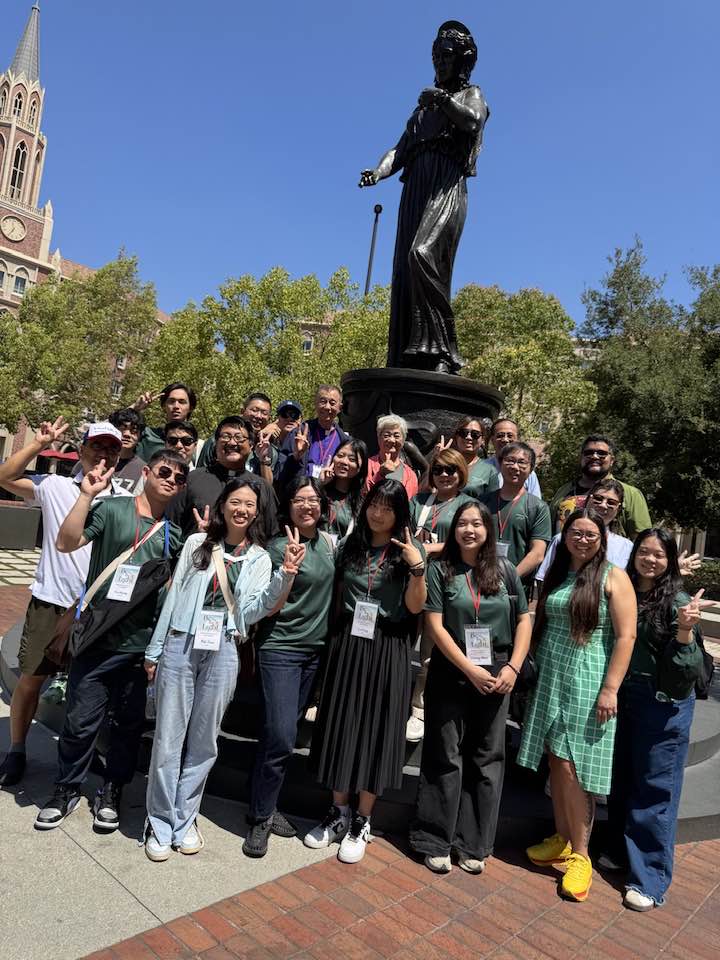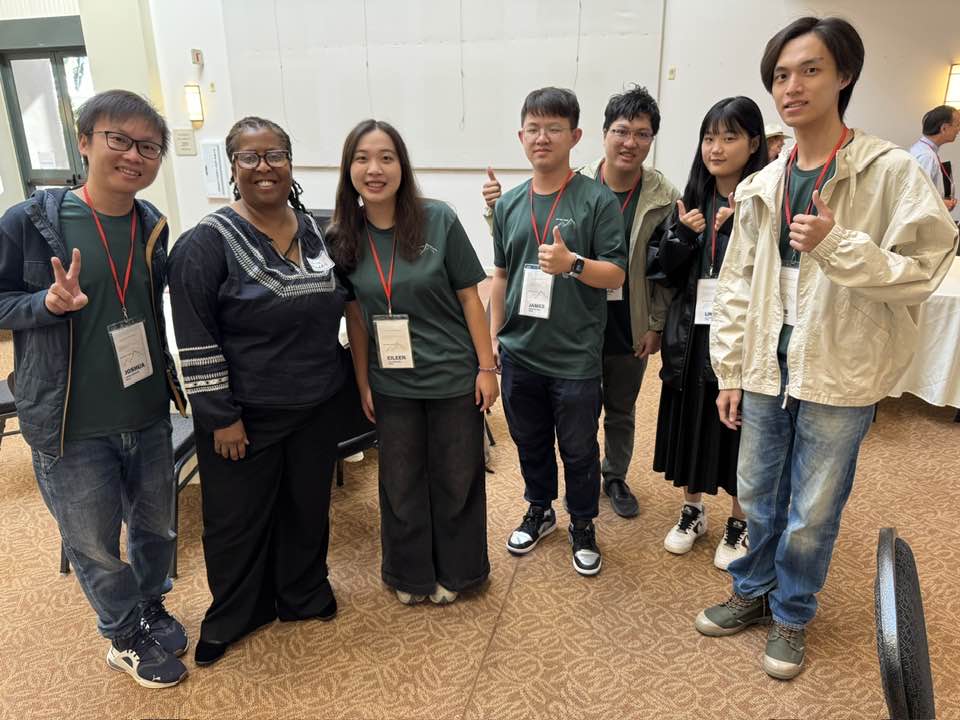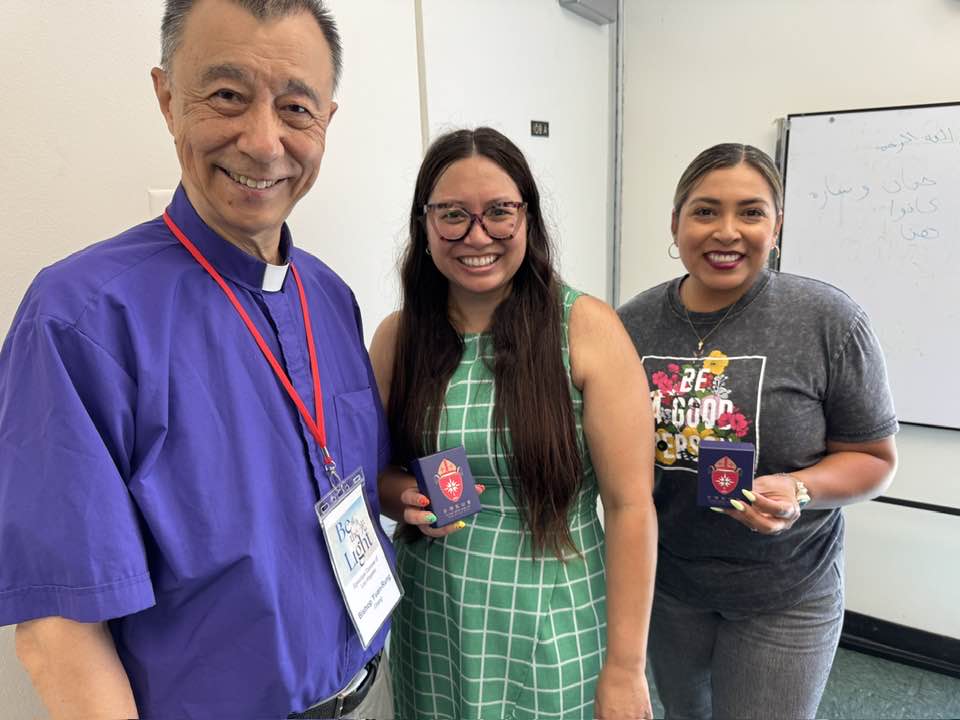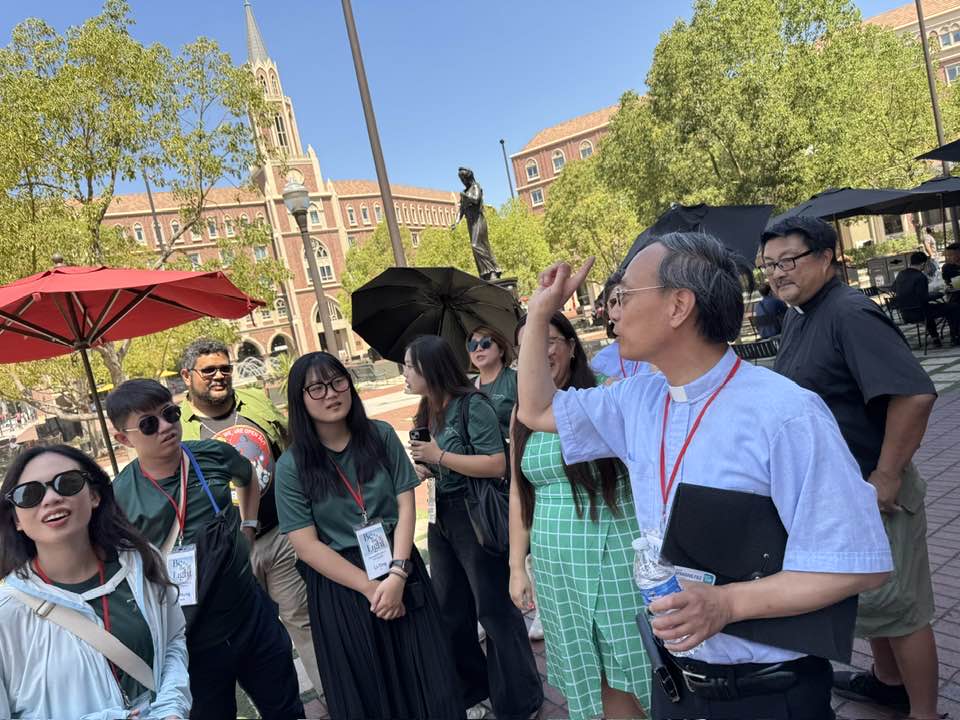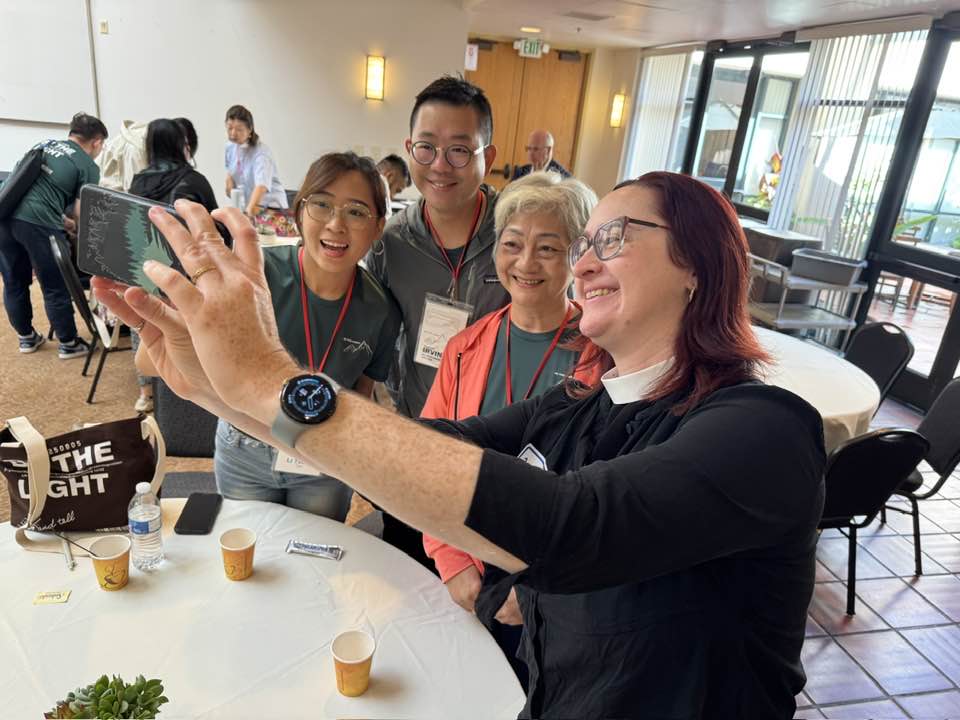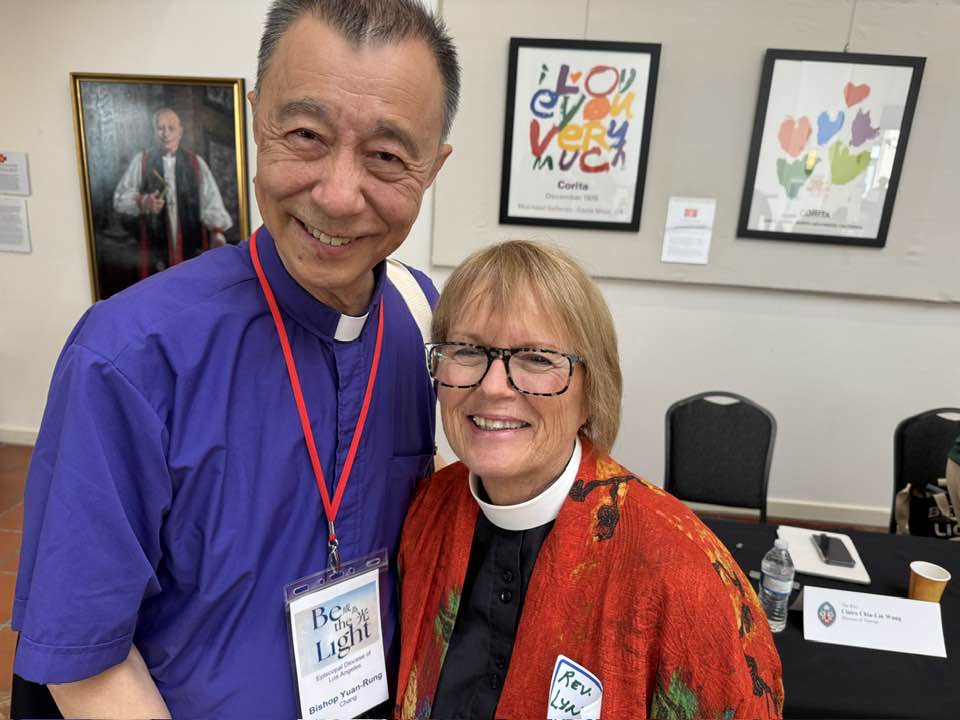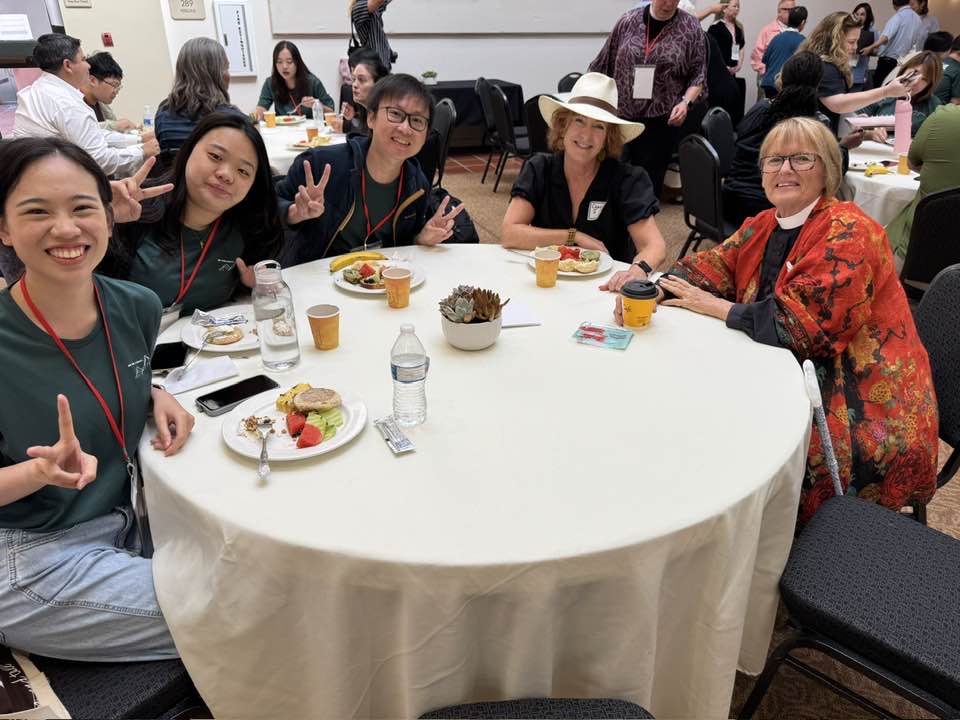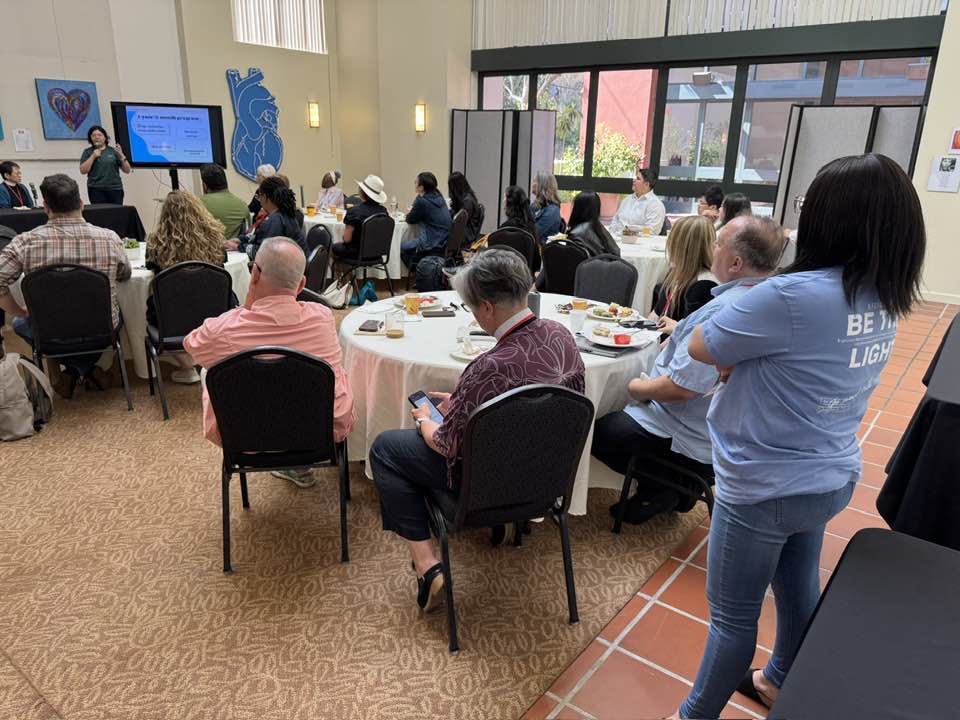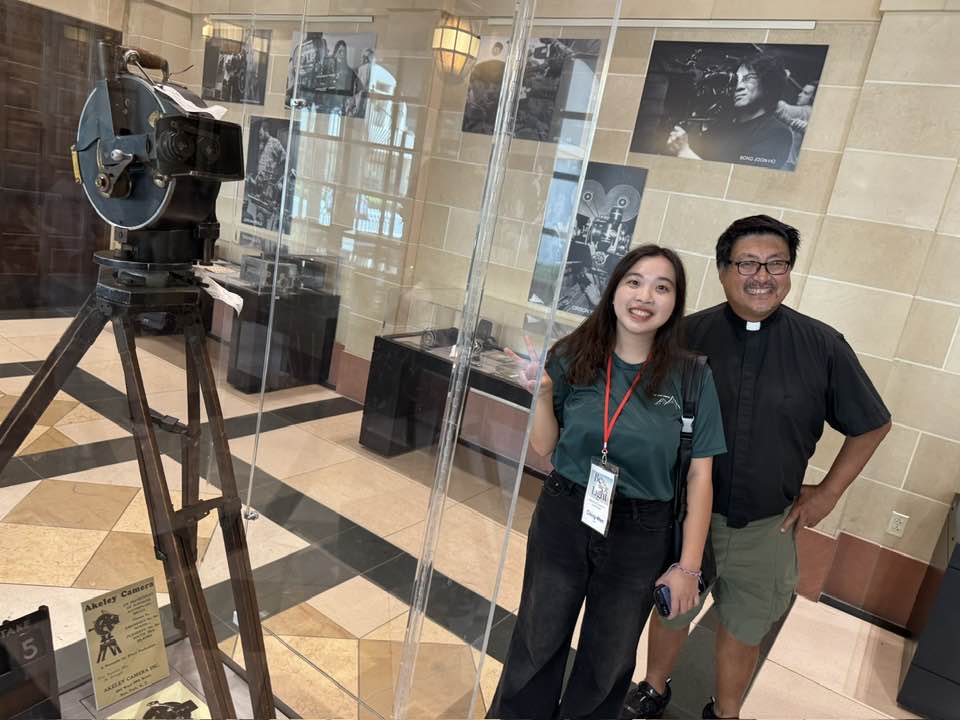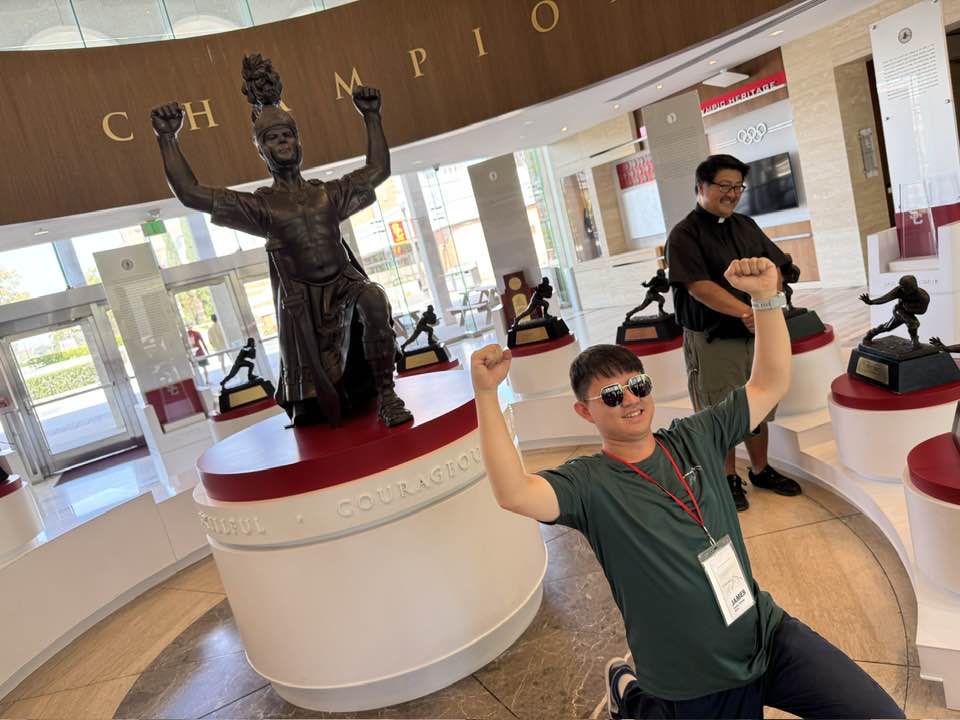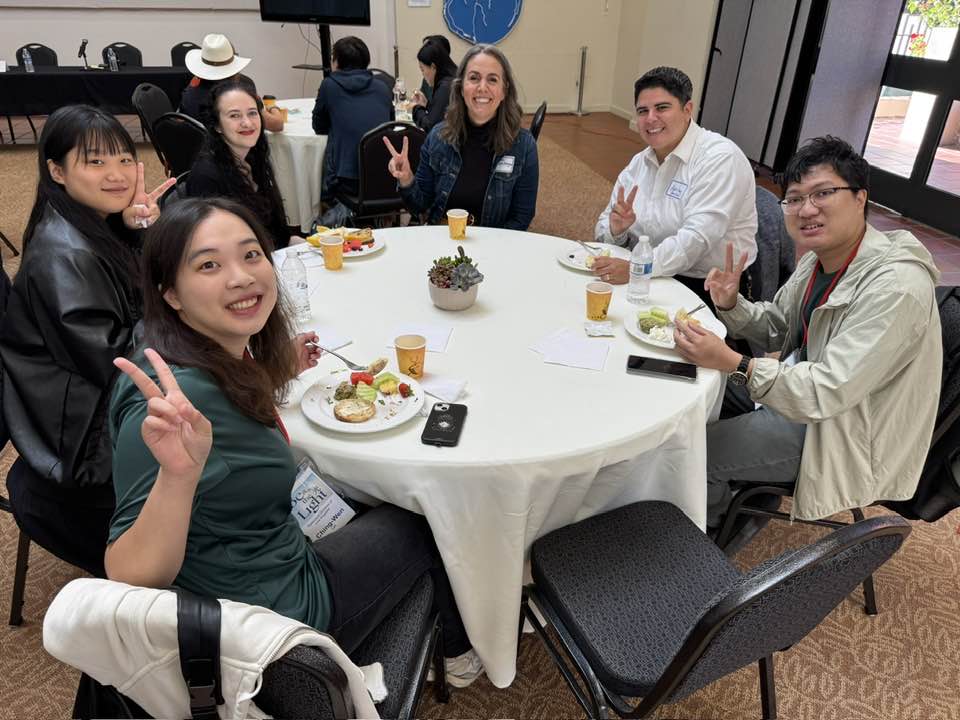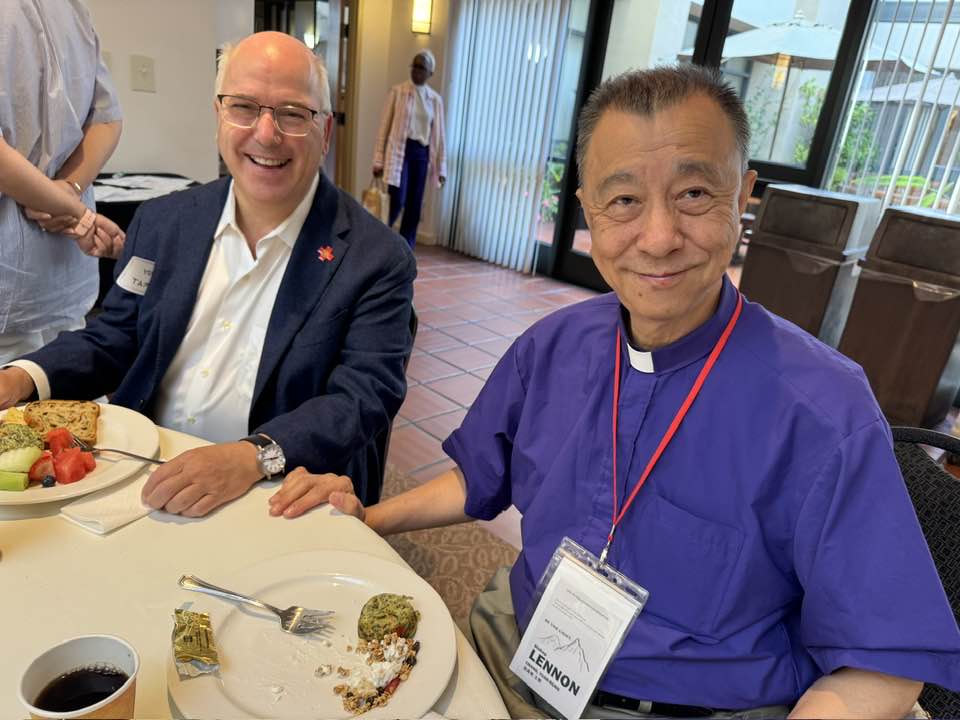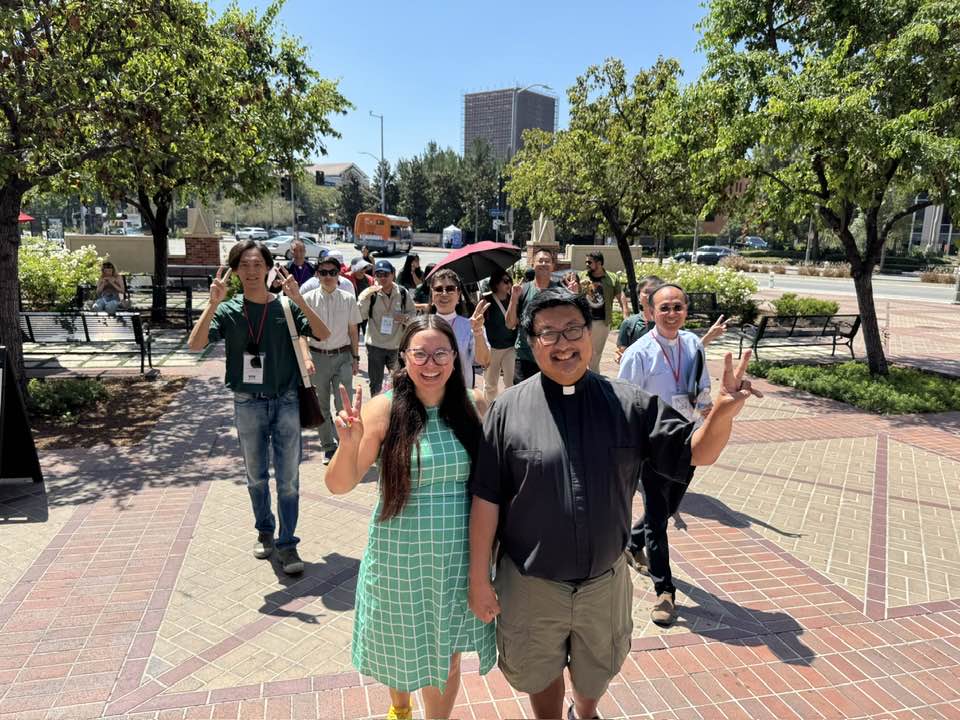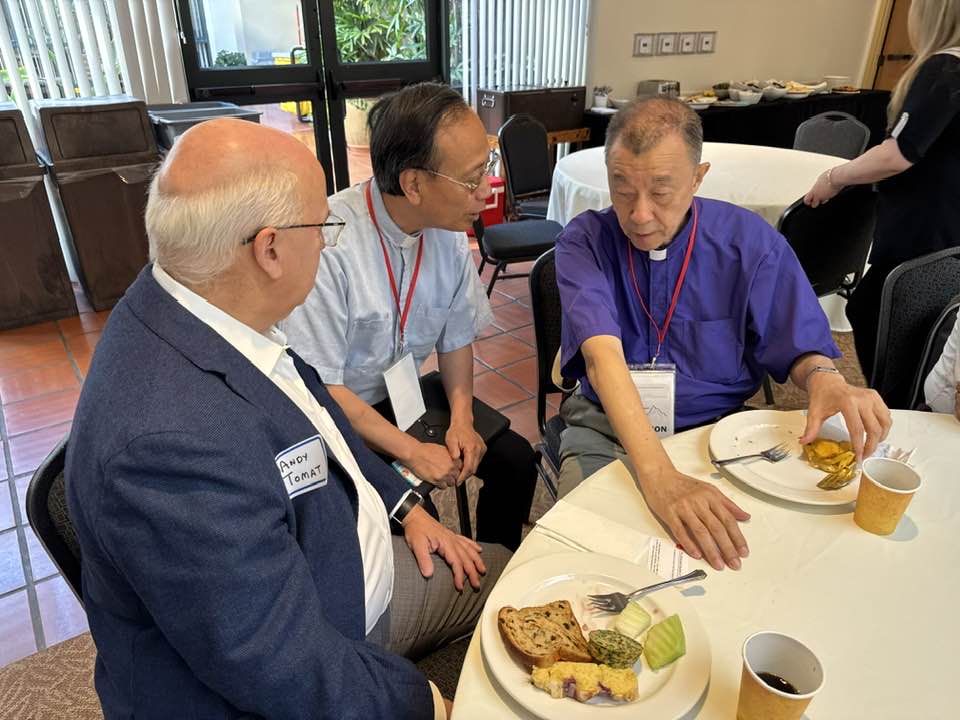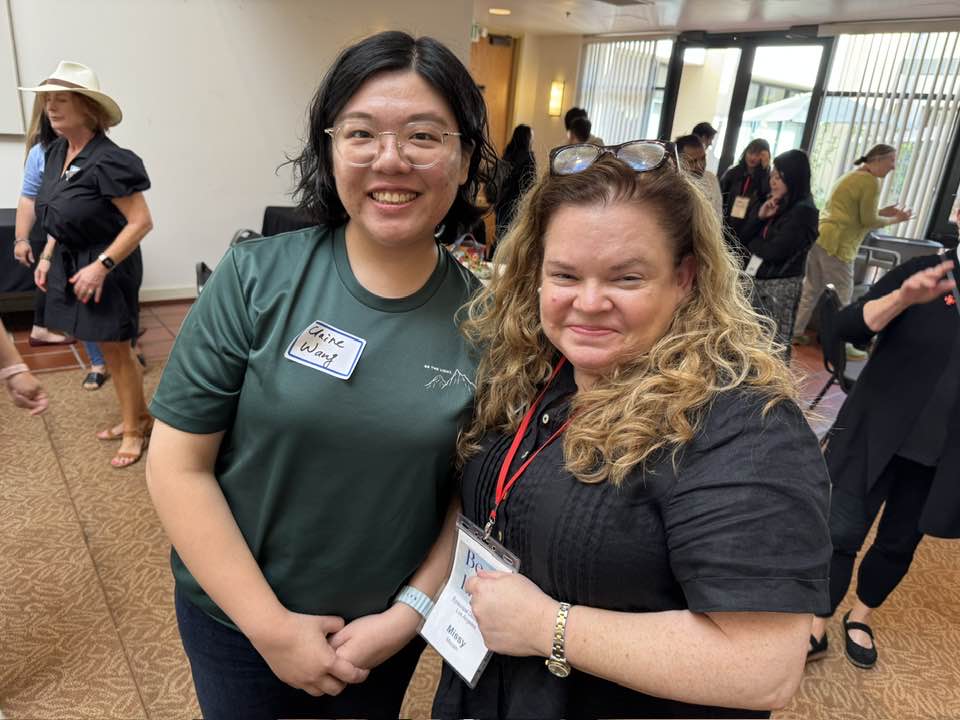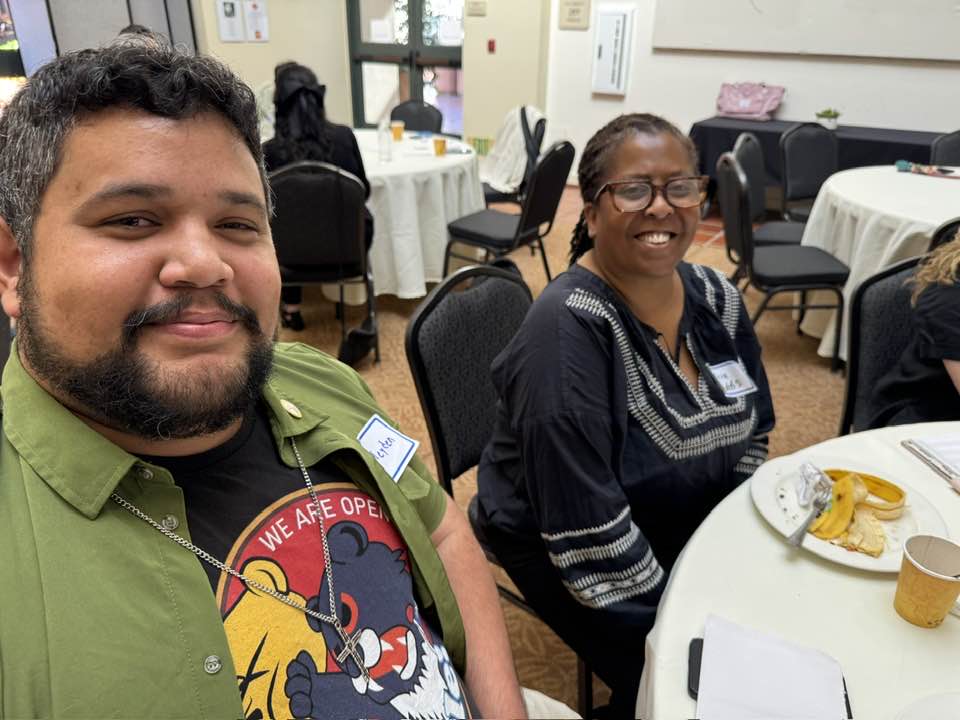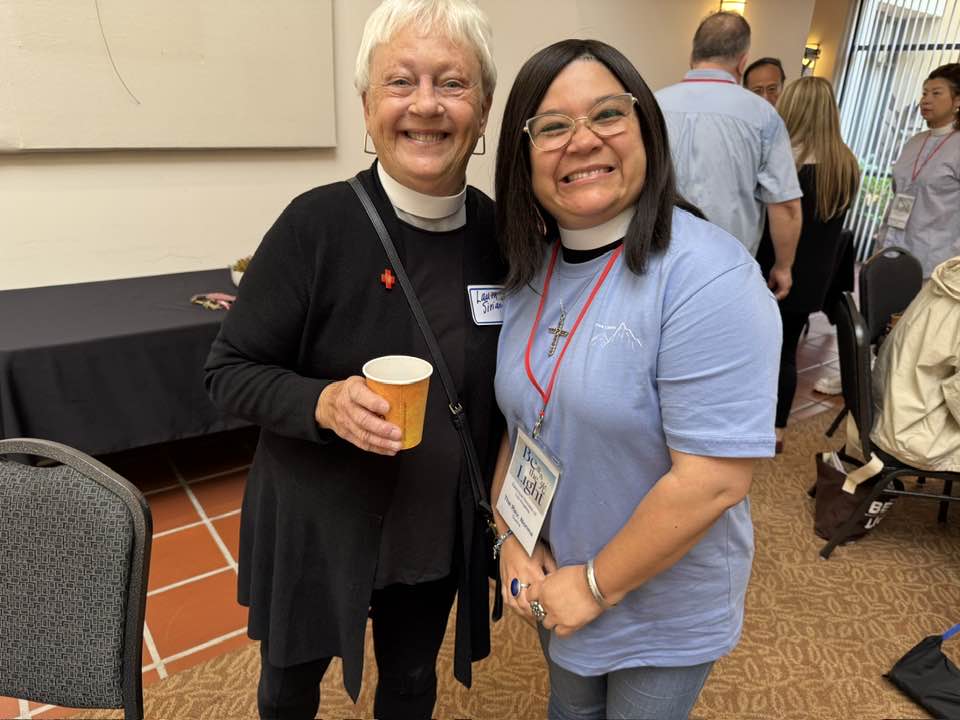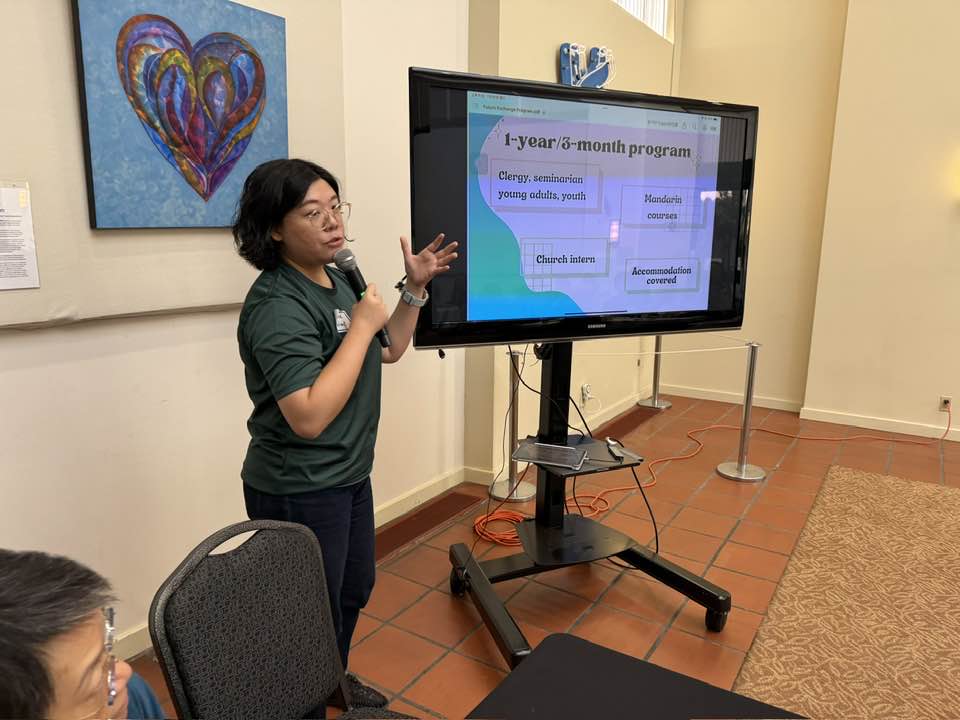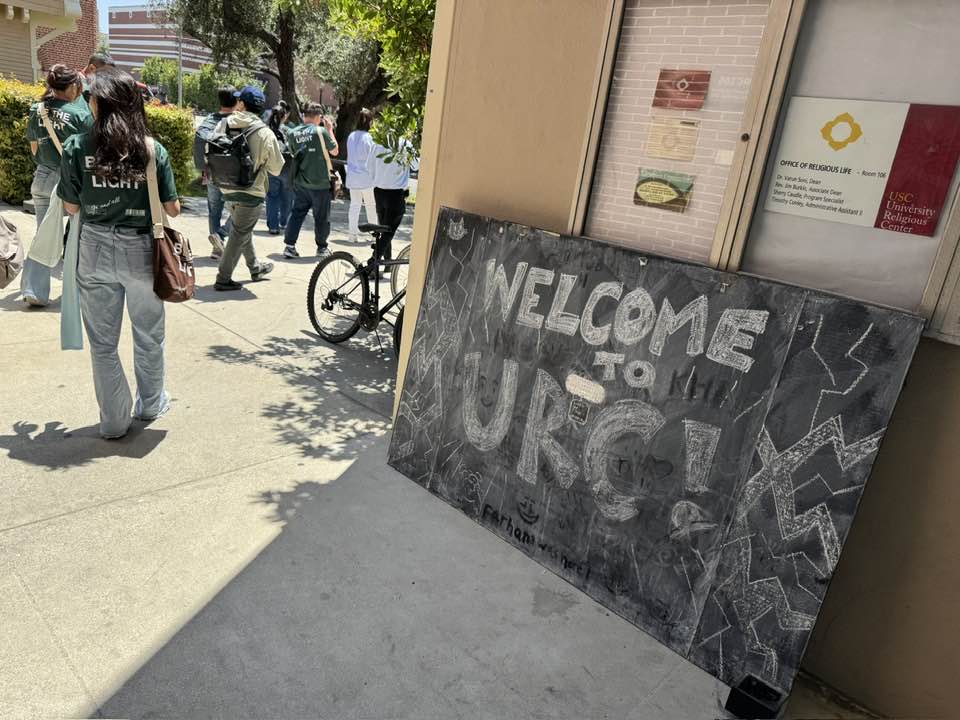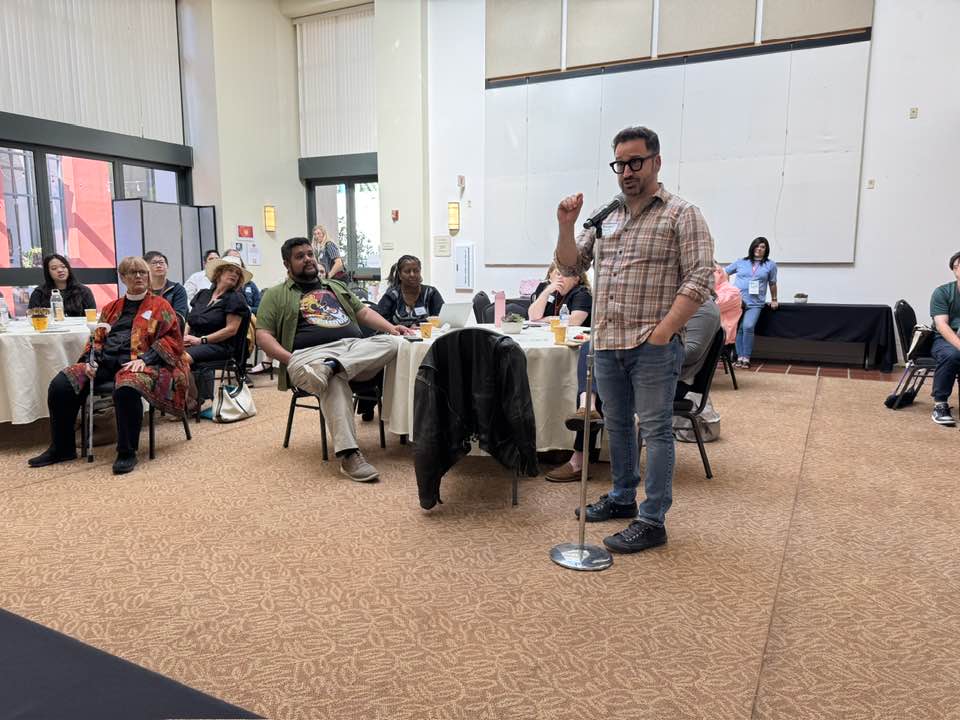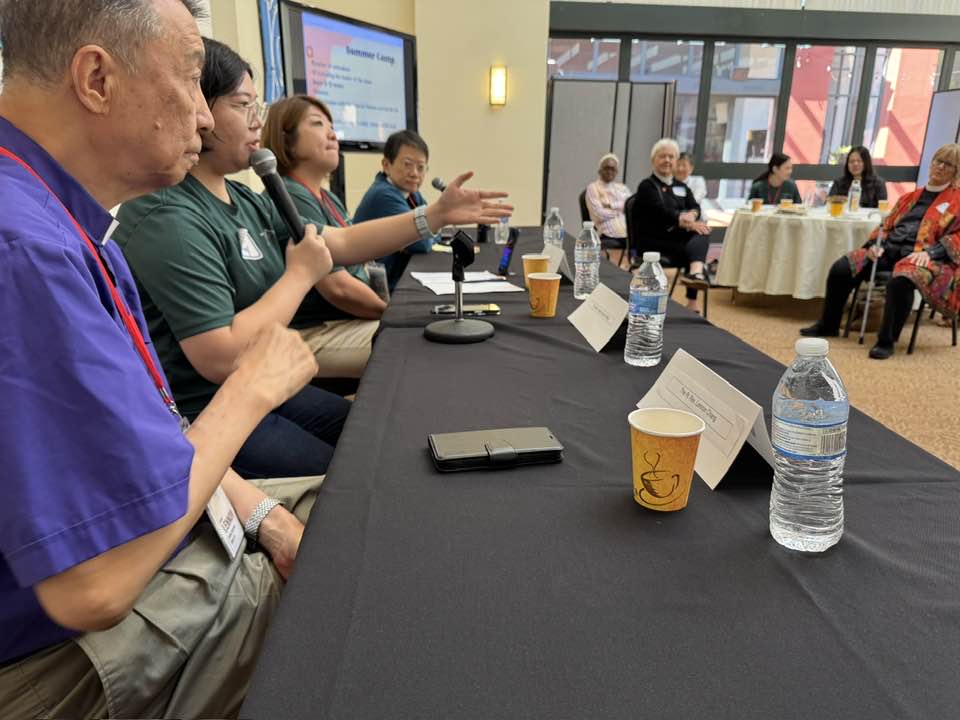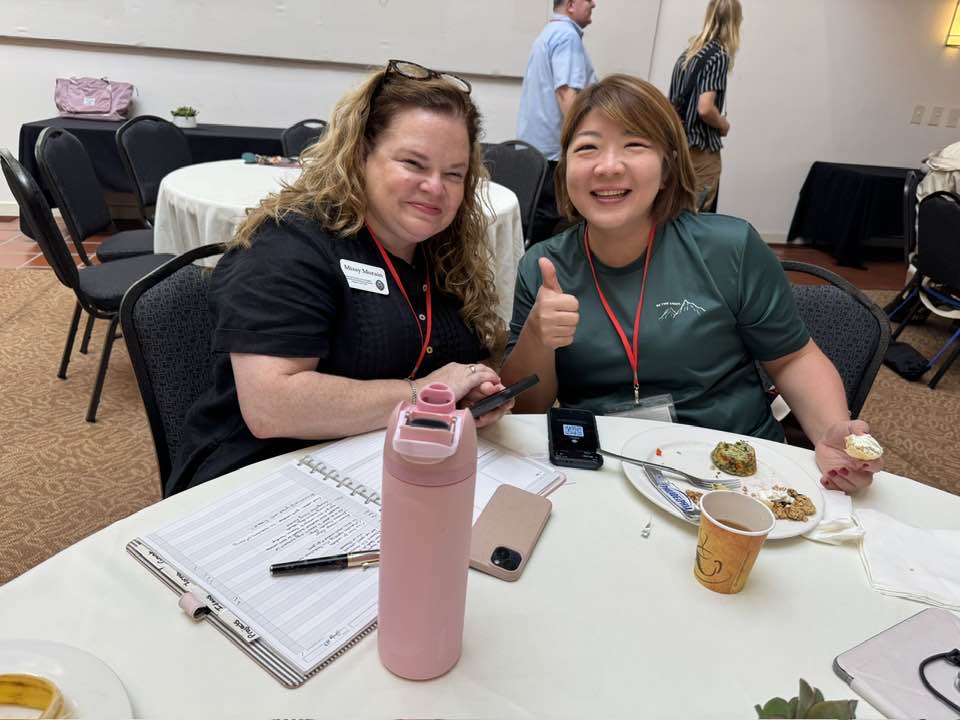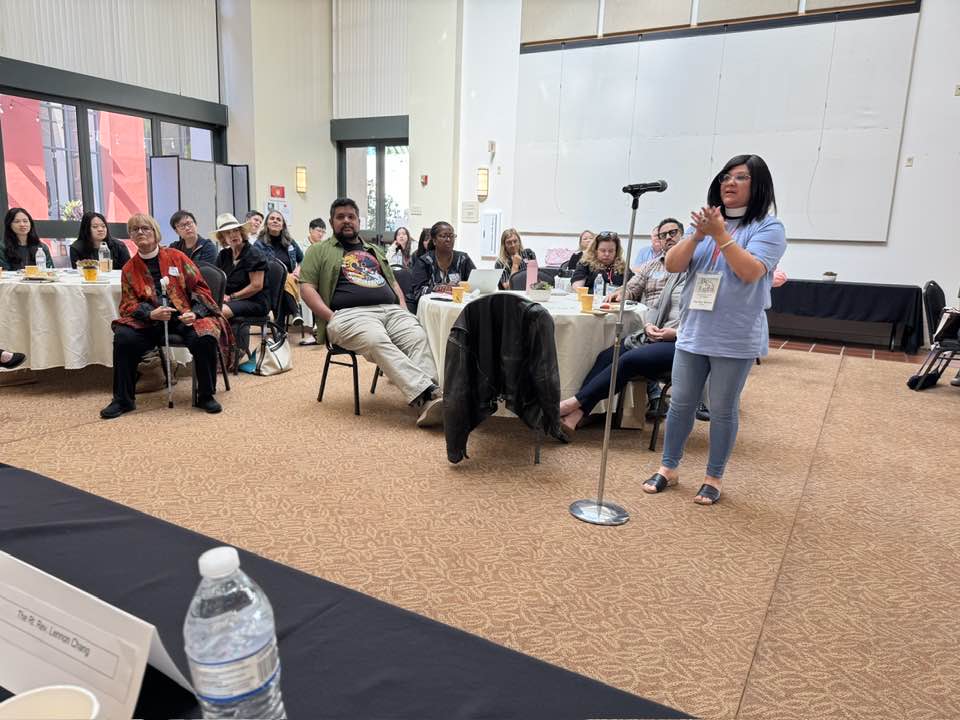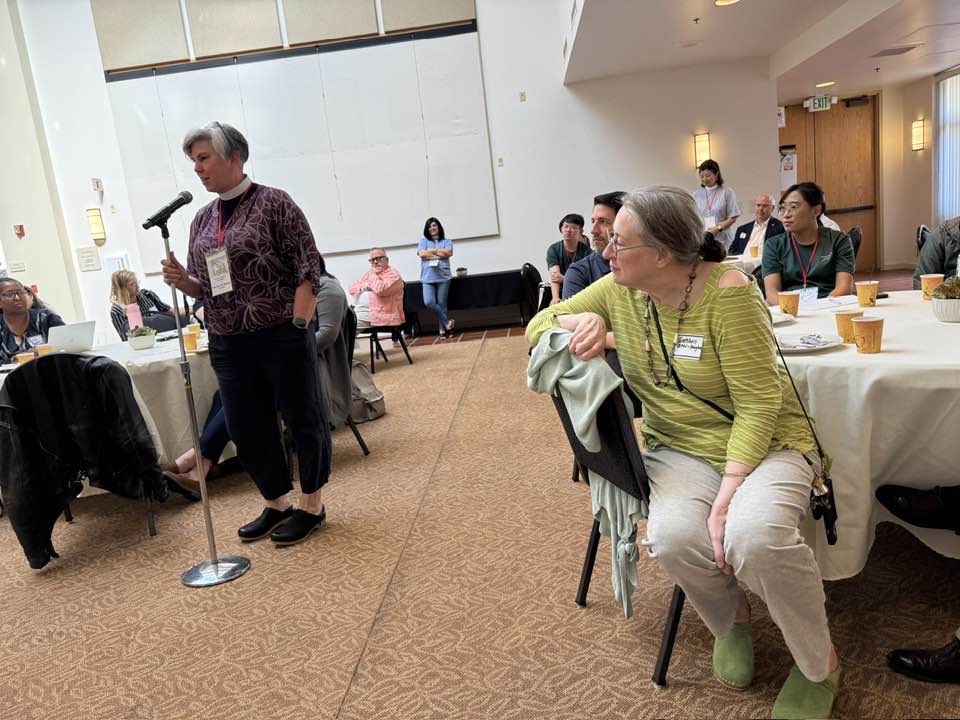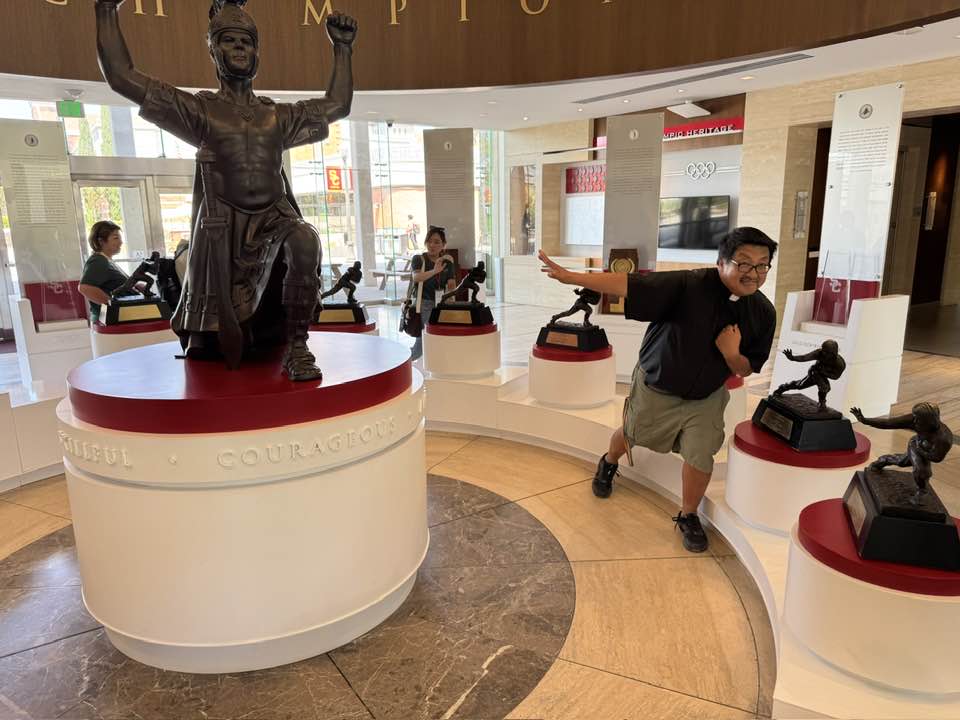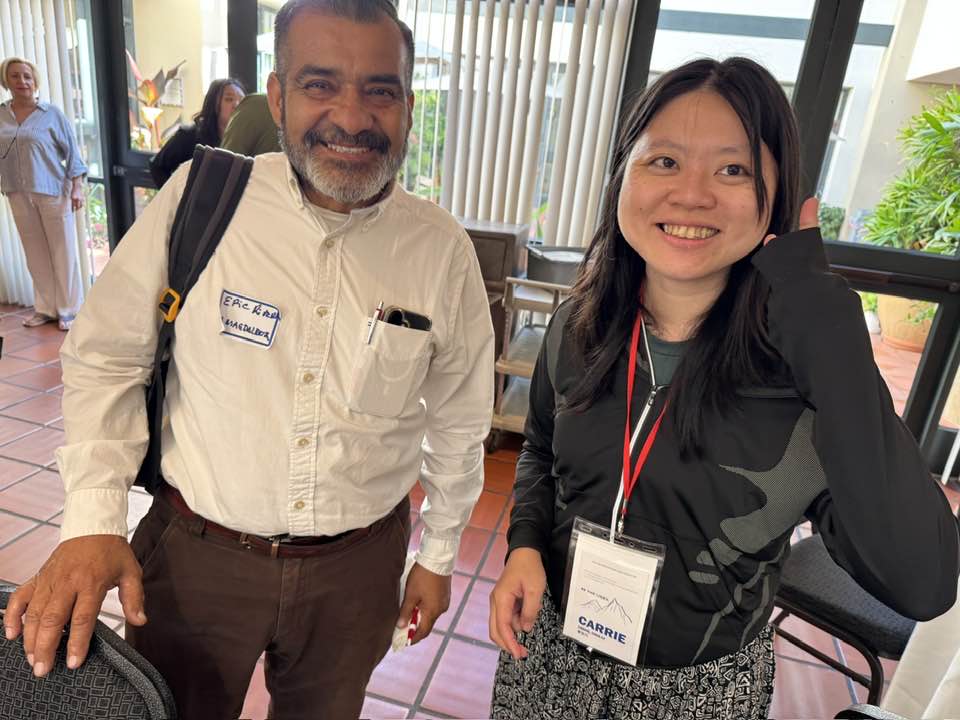As more neighbors from the Chinese diaspora settle in the Episcopal Diocese of Los Angeles, we will need more Chinese language and culturally attuned ministry and mission. That makes Taiwan an ideal classroom for Episcopal formation. Serving abroad is a leap of faith, and it’s always easier to leap if someone we trust is guiding us. On Wednesday morning at St. Paul’s Commons, Echo Park, we set up a friendship factory, inviting our 15 visitors from Taiwan to get to know over 35 LA leaders, especially participants in our discernment process — those exploring their own calls to lay or ordained leadership as well as members of the Commission on Ministry and Standing Committee.
The networking begin over breakfast, where Bishop Chang and our volunteer treasurer, Canon Andy Tomat — mathematician and physicist, respectively — engaged in a spirited conversation. Then I moderated a panel discussion featuring the bishop and his colleagues the Rev. Claire Chia-Lin Wang, who oversees all youth ministry in Taiwan, and youth ministry general secretary Sheera Kong Ling Lee. They especially stressed youth and camp exchanges. Both compared notes with our own youth and young adult missioner, Missy Morain; and all promised to be in touch soon, as new friends always do.
I’ve heard several stories about people visiting Taiwan after a friend suggested it. Via taped testimony, Jeremy Fiebig, a postulate for holy orders in The Episcopal Diocese of East Carolina, told us about a few months he spent in Taiwan at the suggestion of his friend, our own the Rev. Jeffrey Stoller Thornberg, rector of The Church of Our Saviour in San Gabriel, who visited Taiwan last spring. Jeremy said his ministry in Taiwan was life-changing. It all began when he asked a buddy for ideas about something out of the ordinary to do for the glory of God and the sake of God’s people. There is no better proof that most ministry comes down to asking and listening.
One person asked the panel about culture shock for those visiting Taiwan. In response, I atoned for the so-called Nixon shock for Taiwan in 1972 and its marginalization in world affairs as my old boss 37 began the U.S.’s normalization of relations with mainland China. Today only 15 nations recognize Taiwan. People don’t naturally think of it as a tourist destination like Japan, the PRC, or Thailand. But they should. Mainland China wants to sideline Taiwan, but it can’t quite, because Taiwan is amazing. A foreign policy analyst friend put it this way, with respect to the looming threat from Beijing: “It’s a great country in a lousy neighborhood.” I’ve visited twice and never felt more at home. While I don’t speak Mandarin, many Taiwanese speak English. Besides, technology is narrowing language gaps everywhere.
After our conversation, we boarded the bus for USC, where Vanessa Gomez Brake, senior associate dean for spiritual and religious life, gave us a Trojan tour, including the Caruso Catholic Center, film school, and sports hall of fame, before hosting us for lunch and conversation. Assisting her was the Rev. Mel Soriano, associate rector at St. John’s Cathedral and a USC chaplain — and, in an earlier vocational life, the boss of the whole USC data base. Beginning this fall, Mel will have regular office hours at the campus LGBTQ+ center.
It was a lovely morning on the spacious campus, where we felt embraced in red brick. As we walked along, a Taiwan pilgrim told me Christians have relatively little interaction with other faiths. In her remarks over lunch, Dean Gomez Brake said it was the opposite at USC, which has 80 registered religious groups, 50 of them Christian groups that rarely interact. Doctrinal differences run deep, especially when it comes to God’s equity across lines of orientation and identification. “Interfaith work is easier than intra-faith work,” she said.
But that doesn’t mean we don’t keep trying. “People avoid conflict,” she said. “But if you want to be a peacemaker, you have to be in relationship and conversation with people you don’t agree with.” During last spring’s campus uprisings over the Gaza war, she found herself putting her body between angry protestors whose views seemed irreconcilable. Politics and the fog of war muffle the peace of Christ. But faithful USC community members who want to gather across interfaith, intra-faith, and political difference, break bread together, and join in conversation, worship, and meditation can do so in the center’s famous Fishbowl chapel and its other public spaces.
USC even has a registered group for humanists and atheists. Everyone is a seeker, whether they know it or not. Blessed are they who do. Those who hear the spirit’s invitation to visit and do ministry in Taiwan will be impressed with the country’s deep, rich spirituality – – folk religions, Buddhism, and a relatively small but hearty Christian community. Our visiting pilgrims are unstinting in their belief in the risen Christ. They cheerfully minister to all their neighbors without regard to belief. They do the ministry for its own sake, leaving to God the work of transforming hearts. So too our neighbors at USC, providing common ground for complexity and hoping for, and trusting in, the best.
